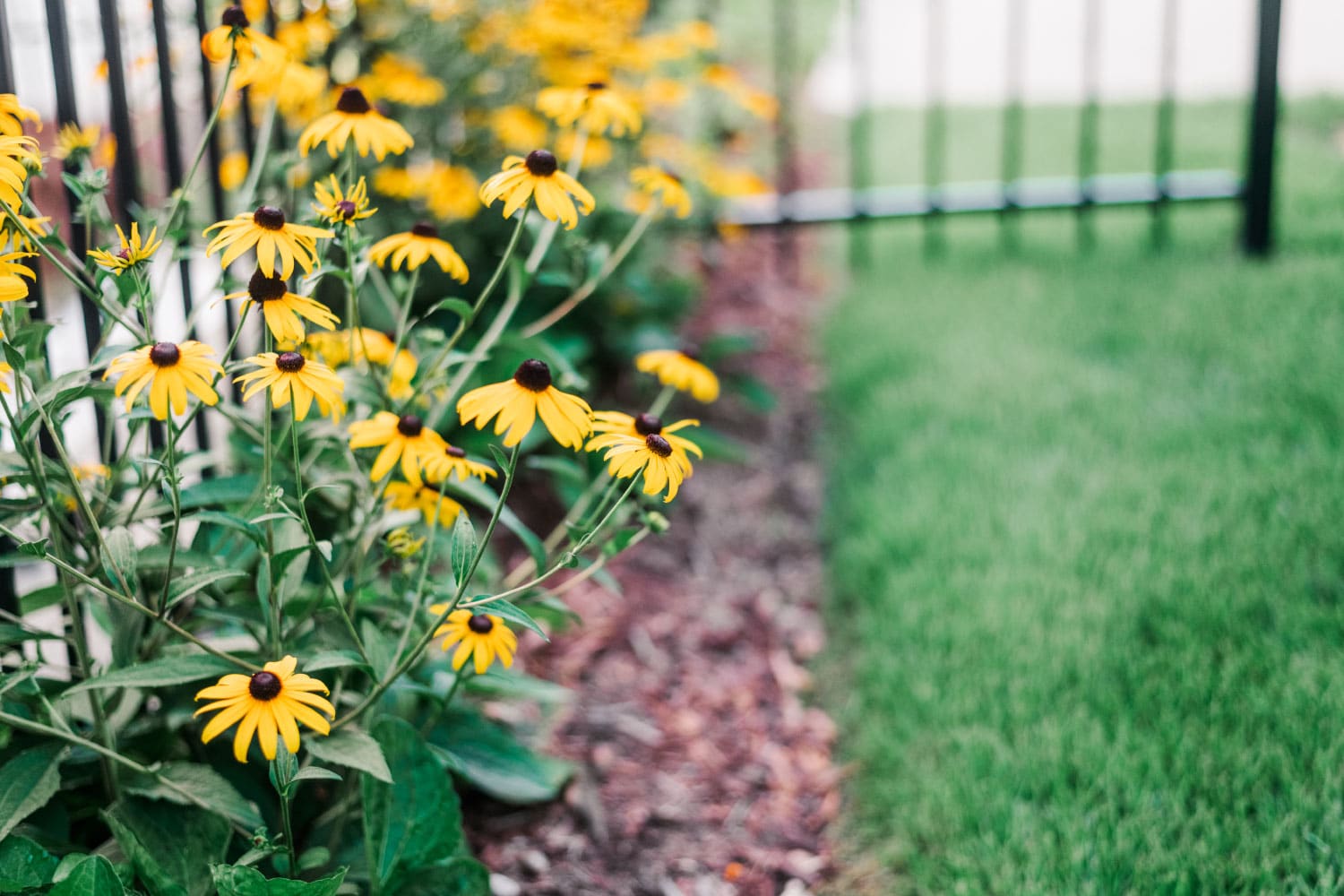Aphids are strange little creatures. If you’ve never experienced these insects on your plants, you may not know what they are or think much of them. Aphids reproduce and proliferate quickly, and when their populations are large, they can cause damage to plants and shrubs. If this has happened to you, you may have a strong (and negative) opinion of these insects. Read on to learn more about these fascinating little insects and their interesting and diverse habits that make identification and treatment strategies vary with the season.
How Do I Identify Aphids?
You can recognize aphids by their shape, by what they leave behind, and by the damage they can do to plants. Aphids are identifiable in a few ways, despite being tiny. Roughly 1/16th to 1/8th inch long, they are shaped like a little kidney, and they can range in color from green, black, red, yellow, brown or gray. Their tell-tale physical trait is having two little protrusions from the rear of their abdomen called cornicles. These cornicles have been visually compared to a car’s tailpipes, and that is a great analogy.
In many cases, you will actually see the effect of aphids before you see the cause. Honeydew, the sticky excrement they leave behind, will eventually mold, causing a black, white, or sooty looking mildew. As they molt, they tend to leave behind small white exoskeletons that get stuck to the honeydew.
More troublesome than the eyesore created by their excretions is the damage they are capable of doing to the leaves of your plants. Curled, discolored leaves in the spring or summer can be indicative of an aphid population. During warm months, they are likely on the underside of leaves, or they may be darker and present on the stems of host plants.
What Is the Best Way to Control Aphids?
At Nature’s Turf, our most effective method of treatment is the application of a systemic insect control product. For our premium tree and shrub customers, this is the first application of the year. Aphids pierce leaves to feed. Because we deliver an insect control product via the sap they consume, this method effectively controls them, ceasing the generations that would follow. Controlling them with a systemic also enables us to target other troublesome pests that pierce to feed, which reduces the number of contact/long-lasting pest control product applications.
Aphids produce offspring prolifically. During the growing season, as many as 15 generations may be produced without the need for male contribution. Many species of aphid are also capable of producing live young, which can grow rapidly during warm summer weather. Controlling them early in a season reduces the generations that may form. When eggs are present and adults are overwintering, strategic applications of horticultural oils can also be effective.
Can My Plants Recover from Aphid Damage?
Yes, generally your plants can recover from aphid damage. Fortunately, outside of circumstances where additional stresses were also causing your plants distress, recovery from aphid damage is only a matter of time. Damaged leaves will eventually be replaced by healthy ones, and the honeydew can be cleaned if it’s visually problematic.
To prevent aphid damage, select plants that are hardy for our climate, treat them in a way that optimizes health, and include them in a pest control strategy that offers control for other troublesome insects.
Important Takeaways:
- Aphids are roughly 1/16th to 1/8th inch long. Shaped kind of like a little kidney, their tell-tale physical trait is having two little protrusions from the rear of their abdomen called cornicles.
- Their excrement is a sticky substance called honeydew. It will eventually mold, causing a black, white, or sooty looking mildew. You may also find old exoskeletons stuck in the honeydew.
- Damage to leaves is often curls and discoloration caused by the feeding.
- The most effective way to treat aphids is to select hardy plants and treat them well to ensure they are healthy. At Nature’s Turf, we also offer a systemic insect control application that will thwart populations early.
- For more information, give us a call at 678-831-6343, or send us an email to info@naturesturf.com.








